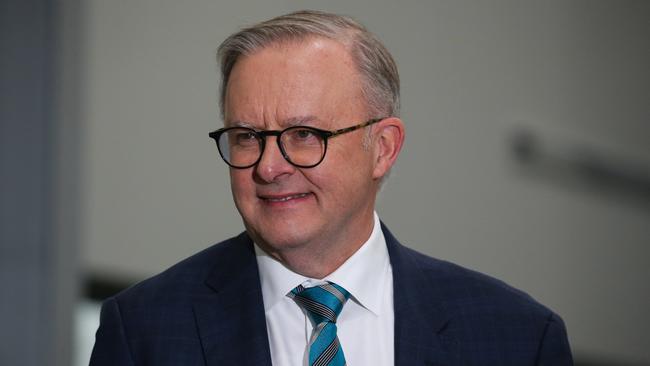
Bloated bureaucracies, mammoth, taxpayer-funded wage bills, generous pay rises, and cushy workplace conditions are central to Labor’s DNA.
Labor’s obsession with public service jobs, which are driving historically low unemployment rates, comes amid severe skills shortages, hundreds of thousands of job vacancies, 13 interest rate hikes, sluggish growth, and concerning global economic headwinds.
Australian Bureau of Statistics figures released on Thursday reveal an almost 10 per cent jump in the number of Canberra-based public servants, driving a $1bn lift in the annual wages bill in the year to June 2023. On Monday, Bill Shorten revealed the government would spend $228m to swell the ranks of Services Australia by 3000 this financial year.
With the ALP ideologically opposed to decentralisation, it is no surprise the ACT’s Labor-Greens coalition has been in power for decades. Big government and more public servants means a larger constituency for Labor and the public service union, more power and less accountability.
The government’s claims that it wants to axe red tape, streamline services, plug skills gaps and boost productivity run counter to the ballooning bureaucracy and proposed IR laws imposing new rules around labour hire, casuals and the gig economy. Frustrated Senate crossbenchers, fed-up by cuts to staffing numbers and overreach by the Albanese government, on Thursday inflicted an early blow to Tony Burke’s union-endorsed IR shake-up. Despite government claims of concessions, Burke’s tactics designed to woo crossbenchers have blown up in his face.
Jacqui Lambie and David Pocock – who Burke must convince to back his Closing Loopholes omnibus bill – issued a clear warning that they are not yet convinced about the sweeping IR reforms. Lambie and Pocock, who are being furiously lobbied by industry groups and business leaders, will push negotiations out to February when the IR legislation comes to a vote.
Albanese and Burke will stare down the crossbench revolt when both houses sit next week and reject the Senate’s request to split the bill and expedite four key reforms.
Ironically, the measures – which include supporting first responders suffering PTSD, protecting workers experiencing domestic violence from discrimination, and expanding the role of the Asbestos Safety and Eradication Agency to cover silica and silicosis – were intended to help get Lambie and Pocock over the line.
Despite the Australian Hotels Association claiming concessions on casuals and timid support from the Pharmacy Guild of Australia, which is negotiating an imminent multi-billion dollar community pharmacy agreement, Albanese faces a tough sell to deliver on his IR promise to union leaders.




Exploding public service numbers, rubber-stamped by Anthony Albanese and his Labor premier comrades, increase the risk of higher inflation, red tape and flatlining productivity at the worst possible time for the economy.